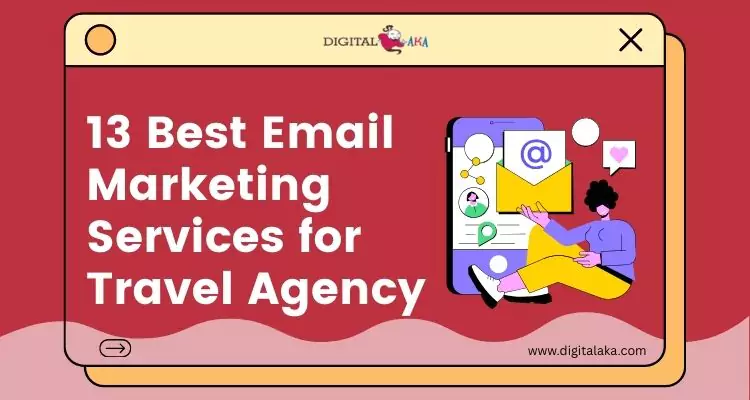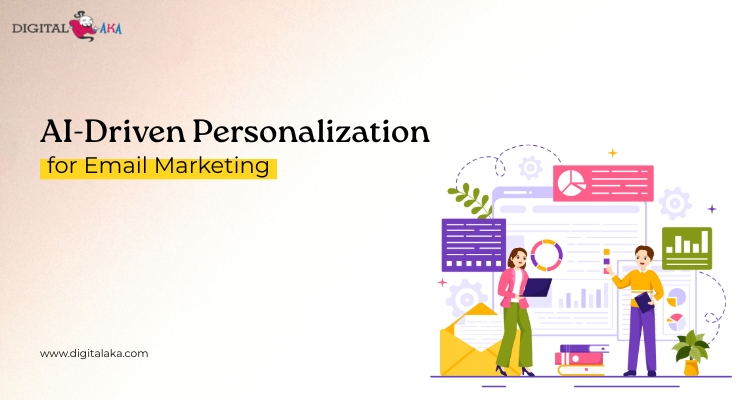
Spam Traps- How to Detect and Prevent Them
January 23, 2025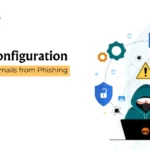
DKIM Configuration- Protect Your Emails from Phishing
January 29, 2025Email Retention is an important part of how businesses work today. Nowadays, companies use email a lot to talk to clients, employees, and other important people. Keeping and managing emails the right way over time helps businesses stay organized, follow rules, and protect important information.
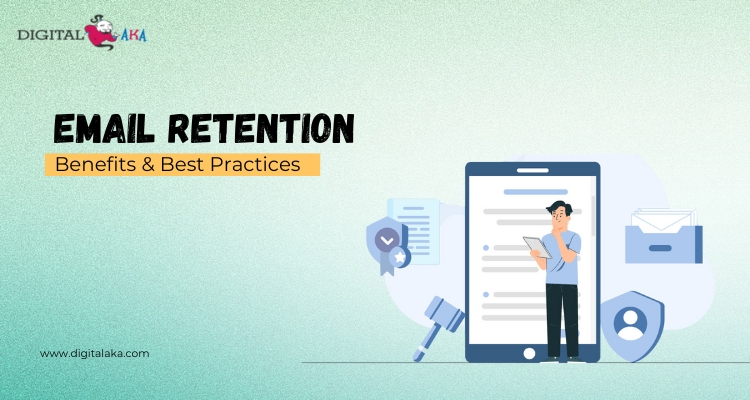
In this comprehensive guide, we will explore the importance of email retention, explore its benefits, and outline the email retention best practices that every organization should implement.
Table of Contents
What is Email Retention?
Email retention refers to the systematic approach of storing, managing, and retaining email communications over a defined period. It ensures that emails are accessible when needed while complying with legal and regulatory requirements. A strong email retention strategy not only safeguards sensitive information but also optimizes business operations.
Businesses today deal with overwhelming volumes of emails, making the establishment of email retention policies essential. These policies help determine how long emails are retained, how they are archived, and when they should be deleted.
Pricing
| Trail Plan | Standard Plan | Premium Plan | Professional Plan |
| $50 | $145 | $185 | $225 |
| Sending Limit | Sending Limit | Sending Limit | Sending Limit |
| 1000 Emails/Hour | 1500 Emails/Hour | 3000 Emails/Hour | 5000 Emails/Hour |
Why is Email Retention Important?
Here’s why email retention is important:
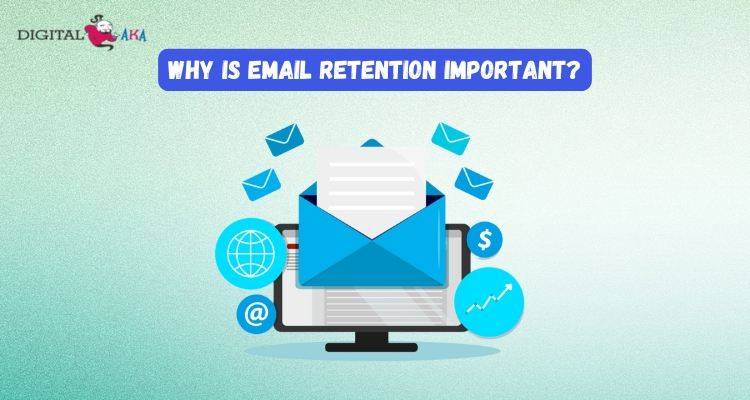
1. Compliance with Legal and Regulatory Requirements
- Many industries are required to follow specific rules for keeping emails for a certain period.
- A strong email retention policy ensures businesses meet these legal requirements and avoid penalties.
- Examples include audits, lawsuits, and regulatory investigations, where retaining old emails is often necessary.
2. Protecting Sensitive Information
- Emails often contain confidential data like contracts, financial reports, or client details.
- A proper email marketing service ensures this information is stored securely and accessible only to authorized users.
3. Improved Organization and Efficiency
- Storing and managing emails correctly reduces clutter and makes it easier to find important communications when needed.
- Following its best practices, such as categorizing and archiving emails, improves overall efficiency.
4. Cost and Storage Management
- Retaining all emails indefinitely can be costly due to storage needs.
- With a defined strategy, businesses can delete unnecessary emails while keeping essential ones, saving costs on storage systems.
5. Disaster Recovery and Continuity
- They ensure important communications are not lost in case of system failures or accidental deletions.
- A strong policy supports recovery efforts and ensures business continuity.
6. Supporting Business Decisions and Insights
- Retained emails can provide valuable insights into past decisions, customer interactions, and project histories.
- A well-structured strategy helps businesses leverage this data effectively.
Key Components of an Email Retention Strategy
Creating a strong email retention strategy ensures that businesses manage their email services effectively while staying organized and compliant. Here are the key components to consider:
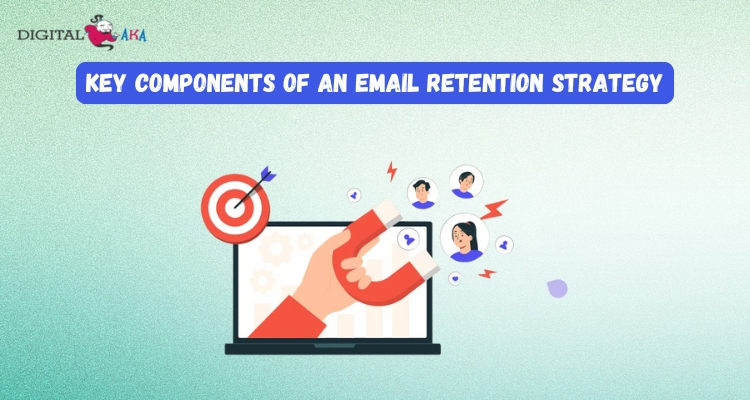
1. Establish Clear Email Retention Policies
- Define how long emails should be kept based on their purpose or content.
- Align policies with legal, regulatory, and business requirements.
- Ensure employees understand the policies to maintain consistency in managing emails.
2. Categorize Emails by Type
- Separate emails into categories like client communications, contracts, internal memos, and marketing emails.
- This helps in applying relevant policies to different types of messages.
3. Automate Retention Processes
- Use software tools to automate retention email sorting, archiving, and deletion processes.
- Automation reduces the chances of human error and ensures compliance with their strategy.
4. Focus on Compliance and Security
- Ensure their policies meet local and industry regulations.
- Implement secure storage solutions to protect sensitive information during the retention period.
5. Regularly Review and Update Policies
- Business needs and regulations change over time, so review your email retention strategy regularly.
- Update the policies to reflect new requirements or operational shifts.
6. Educate Employees on Best Practices
- Train staff on its best practices, such as identifying critical emails and using proper archiving tools.
- Encourage adherence to the policies to improve efficiency and reduce risk.
7. Implement Backup and Recovery Options
- Ensure that retained emails are backed up in case of accidental loss or system failure.
- A reliable recovery process is key to maintaining email marketing integrity.
Email Retention Best Practices
Here are some email retention best practices that can help organizations implement an efficient email retention strategy:
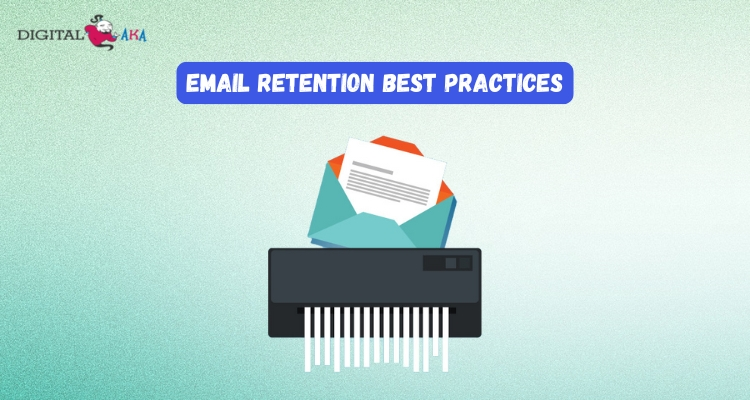
1. Define Clear Email Retention Policies
- Create clear and simple policies that specify how long emails should be kept and when they should be deleted.
- Base your policies on industry regulations, legal requirements, and business needs.
2. Classify and Organize Emails
- Use labels, folders, or categories to organize email campaigns based on their importance and relevance.
- For example, group emails by client interactions, financial records, or project details to simplify access and retention.
3. Automate Retention Processes
- Use tools or software to automate their processes, such as archiving and deleting old messages.
- Automation reduces manual errors and ensures compliance with their policies.
4. Regularly Audit Email Retention Practices
- Periodically review your strategy to make sure it aligns with your organization’s goals and any updated regulations.
- Conduct audits to identify gaps and address them promptly.
5. Educate Employees on Email Retention
- Train employees on the importance of following email retention policies to maintain consistency and compliance.
- Share best practices for managing emails, such as avoiding unnecessary retention of irrelevant or outdated emails.
6. Use Secure Email Archiving Solutions
- Invest in secure email archiving tools to store important emails safely.
- This ensures sensitive information is protected and easily retrievable when needed.
7. Follow Legal and Regulatory Requirements
- Understand the specific rules related to email storage in your industry or region, such as GDPR or HIPAA, and ensure your email retention strategy complies with them.
Benefits of a strong Email Retention Strategy
Below are the key benefits of implementing effective email retention policies and adopting email retention best practices:
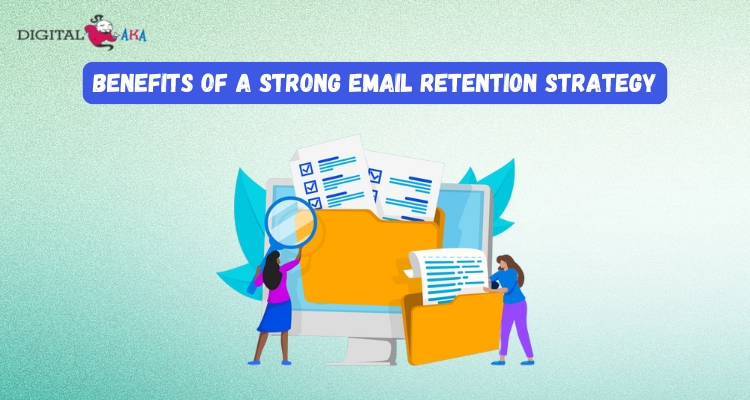
1. Compliance with Legal and Regulatory Requirements
- Many industries are required to retain emails for a specific period to comply with legal or regulatory standards. A well-designed email retention policy ensures that your organization avoids penalties and legal issues by adhering to these requirements.
- An efficient retention email system also makes it easier to access emails during audits or investigations.
2. Improved Data Organization
- A clear strategy helps businesses organize their data by categorizing and archiving emails systematically.
- Employees spend less time searching for old emails, improving productivity and reducing frustration.
3. Enhanced Security and Data Protection
- Retaining emails securely and deleting outdated or irrelevant emails reduces the risk of data breaches.
- There best practices include implementing encryption and access controls to protect sensitive information.
4. Reduced Storage Costs
- Unnecessary emails can consume a large amount of storage space. By following a well-thought-out email retention policy, businesses can regularly purge non-essential emails and optimize storage costs.
5. Streamlined Communication
- A solid strategy ensures that only relevant and updated emails are kept, making communication more focused and efficient.
- Employees can quickly locate important emails, boosting workflow and collaboration.
6. Support for Legal Discovery
- In cases of disputes or legal proceedings, an effective email retention policy allows companies to quickly retrieve and present required emails as evidence, saving time and resources.
Retention Email Tools and Technologies
Email Retention Tools and Technologies are important for businesses to manage and store emails effectively. Here are some key aspects:
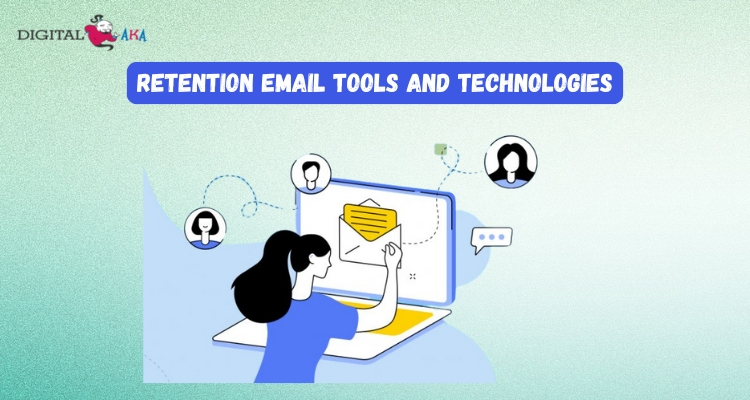
1. Email Retention Policies: These policies help businesses define how long emails should be stored and when they should be deleted. This ensures compliance with legal regulations and company guidelines.
2. Retention Email Systems: These systems automatically categorize and archive emails for easy retrieval, improving workflow and security.
3. Email Retention Strategy: A solid strategy outlines how emails are managed, stored, and disposed of, helping organizations minimize risk and maintain productivity.
4. Email Retention Best Practices: These include regularly reviewing and updating retention policies, classifying emails based on importance, and ensuring email backups are in place to prevent data loss.
Challenges in Email Retention
1. Managing Volume: With the increasing number of emails exchanged daily, maintaining proper email retention becomes a challenge. Companies struggle to keep track of large volumes of emails without overburdening their systems.
2. Compliance Issues: Adhering to industry regulations and legal requirements can make it difficult to set up effective email retention policies. Failing to retain emails for the required time or deleting them too soon can result in legal complications.
3. Data Security: Storing emails long-term raises concerns about protecting sensitive data. Without proper email marketing strategies, confidential information could be exposed or lost.
4. Organization & Searchability: Ensuring that retained emails are easy to search and retrieve is key. Poor organization of retention email systems can make finding important messages time-consuming.
5. Balancing Retention Time: Determining the right email retention best practices for different types of emails, while balancing storage costs and efficiency, is often a challenge for businesses.
Overcoming Challenges in Email Retention
It can be challenging for businesses, but there are strategies to make it easier and more effective. Here are some ways to overcome common hurdles:
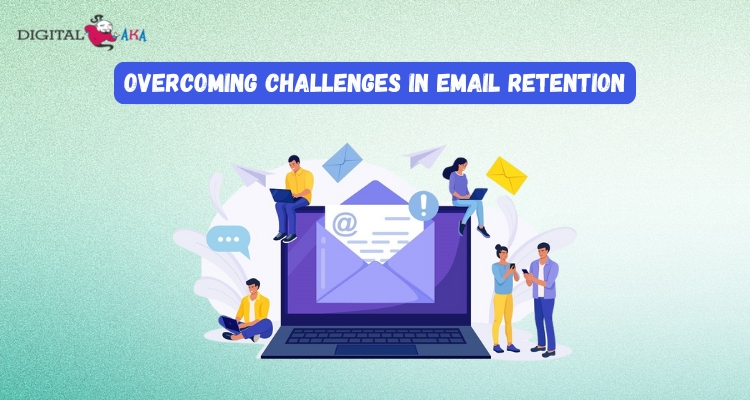
1. Set Clear Email Retention Policies: Establish their policies that define how long different types of emails should be kept and when they should be deleted.
2. Create an Effective Email Retention Strategy: Develop a comprehensive strategy that includes guidelines for storing, archiving, and managing emails.
3. Follow Email Retention Best Practices: Regularly review emails, organize them into categories, and ensure compliance with regulations.
4. Implement Automated Tools: Use automated software to manage retention email processes, making it easier to sort, store, and delete emails as needed.
Future Trends in Email Retention
As technology evolves, so does the field of email retention. Emerging trends include:
1. AI and Automation in Email Retention: As businesses grow, artificial intelligence (AI) will play a key role in managing email retention. AI will help automate the process of sorting and categorizing emails, making it easier to manage vast volumes of data.
2. Stricter Email Retention Policies: With increased regulations around data privacy, companies will adopt more stringent policies to ensure they comply with laws like GDPR and CCPA.
3. Cloud Storage for Retention Email: Cloud-based solutions will become more popular for storing emails. This will offer better security, easy access, and scalable storage options for retention email needs.
4. Email Retention Strategy: Businesses will focus on creating clear and comprehensive strategies that define how long emails should be kept and when they should be deleted.
5. Email Retention Best Practices: Organizations will continue to refine their email retention best practices, emphasizing regular audits, clear labeling, and compliance with privacy laws.
Conclusion
Email retention is more than just a best practice—it is necessary for businesses of all sizes. Organizations can improve efficiency, ensure compliance, and safeguard critical information by implementing clear email retention policies, utilizing the right tools, and following their best practices.
A strong email strategy helps businesses stay organized and protects them from potential legal and regulatory challenges. With the right approach, businesses can turn email retention into a powerful tool for long-term success.


